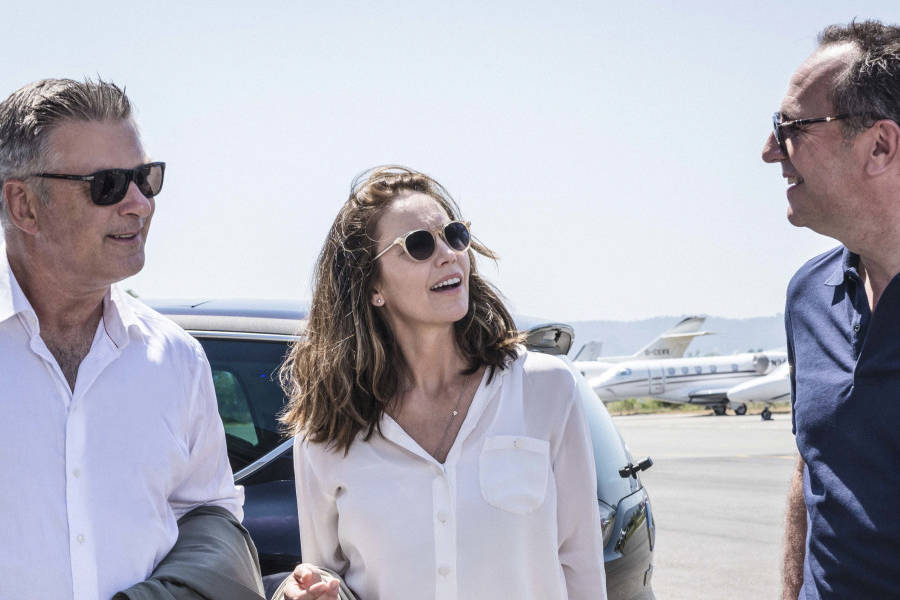In the notes I jotted down while watching Paris Can Wait, I find these words scribbled: “Everything is off.” I don’t remember what specific scene or moment I was referring to, but I know what I meant. The timing is awkward, the camera doesn’t seem to know how to frame people for anything other than scenic effect, the actors sound uncertain. Odd shifts in tone are randomly distributed throughout the action. But wait, you might be asking, isn’t that “technical” stuff that only critics care about? To which I would say (if we can carry this imaginary conversation a little longer) that these shortcomings are not technical stuff, they are the movie itself, and they are the reason Paris Can Wait feels baggy and unoriginal. Everything is off, at the granular level.
Having said that, I get that Paris Can Wait might be liked by some viewers, in the same way you might like a bad painting of cheese because you just really love cheese. Speaking of which, this film has a lot of lavishly presented food. It also has appeal in its likable star, Diane Lane, and includes the ever-colorful personality of Alec Baldwin, who hangs around the periphery.
One wants to root for the thing if only because it represents the narrative writing/directing debut of an 81-year-old who has previously been associated with “making of” documentaries while supporting the career and life of a very famous man of cinema. Eleanor Coppola met her husband Francis in the early 1960s and has weathered many storms with him since then. One of the biggest was the endless shooting of his film Apocalypse Now, out of which came her amazingly frank memoir of the production, Notes, and the Oscar-winning documentary Hearts of Darkness: A Filmmaker’s Apocalypse, which she co-directed. Earlier this week her daughter Sofia won the Best Director prize at the Cannes Film Festival. If anybody has earned a shot at making her own feature, surely it’s Eleanor Coppola.
The situation depicted in Paris Can Wait has autobiographical overtones. We meet Anne (Lane) in the south of France; she’s about to fly to Budapest with her husband Michael (Baldwin), a big-shot movie producer. An earache stops her, and she accepts a ride to Paris from a mutual friend, Jacques (Arnaud Viard). Jacques contrives ways to slow down a one-day road trip into a three-day tour of France, and we assume his interest in Anne extends beyond acting as a tour guide—because he is French, you see, and they serve modern ideas about love like they serve Freedom Fries.
Actually, most of the food in the film is sumptuous and expensive, a luxury that seems to exist solely to ride the foodie-movie wave. It’s also one way Paris Can Wait is blissfully unaware of its own comfy worldview. In a couple of scenes, Anne expresses her annoyance at the service in lavish places, and I kept waiting for her to receive a rebuke about her sense of privilege, but—no, the movie endorses her irritation. This prompted a flashback to a moment I have tried to forget from Barbra Streisand’s A Star Is Born, in which Streisand’s character demands that an entire line of traffic wait in place because she is having an argument with Kris Kristofferson’s character. Even at a tender age, I remember taking umbrage at the idea that Streisand—her natural timidity as evident as ever—found her squabble more important than the petty lives of all those little people out there. Paris Can Wait has a few of these tone-deaf passages.
Diane Lane has little to play beyond Anne’s frustration with being her rich husband’s caretaker and having vague ideas about being a photographer because she likes to photograph things. Sorry, but you need more oomph to make a movie click, even if Paris Can Wait is undeniably full of nicely photographed things. Paris Can Wait, Rated PG. Opens June 2 at Pacific Place, Sundance, Lincoln Square.
film@seattleweekly.com






